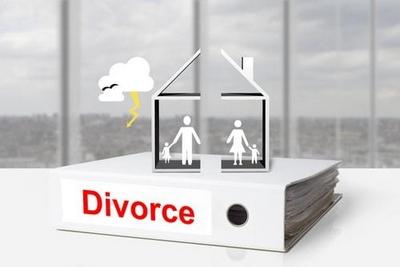What Is Marital Property?
 In some states, divorcing spouses are entitled to an equal share of their “community property.” This, however, is not the case in Illinois. Illinois and 40 other states are considered “equitable distribution” states, which means that the marital property of a divorcing couple must be divided fairly between the spouses, not necessarily equally. While determining what is fair can be quite complicated, the process begins with identifying what property is considered marital and what is considered non-marital for the purposes of the divorce.
In some states, divorcing spouses are entitled to an equal share of their “community property.” This, however, is not the case in Illinois. Illinois and 40 other states are considered “equitable distribution” states, which means that the marital property of a divorcing couple must be divided fairly between the spouses, not necessarily equally. While determining what is fair can be quite complicated, the process begins with identifying what property is considered marital and what is considered non-marital for the purposes of the divorce.
Illinois Law
Most of the statutes that govern the divorce process in Illinois are contained in the Illinois Marriage and Dissolution of Marriage Act (IMDMA). The IMDMA expressly defines marital property as “all property, including debts and other obligations, acquired by either spouse subsequent to the marriage” with several important exceptions. These exceptions include but are not limited to:
- Property received as an inheritance or gift;
- Property acquired after a legal separation;
- Property specified as non-marital property by a valid prenuptial or postnuptial agreement; and
- Income or proceeds generated by the sale of non-marital property.
Non-marital property is not subject to division during the divorce, but it may be taken into account when deciding how the marital estate should be divided.
Keeping Non-Marital Property Separate
The exceptions provided in the law make it rather clear that property that either spouse owned before the marriage or acquired as an inheritance during the marriage should be considered non-marital in most cases. It is important to keep in mind, however, that it is possible for non-marital property to become marital property if you are not careful.
Commingling marital and non-marital property in such a way that the non-marital property can no longer be identified as separate, the commingled property will be considered marital property. For example, if you owned a restored classic car before you got married, the car is non-marital. Assume that during your marriage, you sold the car because you no longer had time to enjoy it. The proceeds of that sale would also be non-marital property. Now assume that you deposited the proceeds of the sale into an account that you shared with your spouse and used the money to open a business in both your name and that of your spouse, the proceeds of the sale could be considered to have transmuted to marital property. The law presumes that if you had wanted to keep the money separate from the marital estate, you could have done so.
Contact Us for Help
Determining what is and what is not marital property can be more complicated than many people realize, and an experienced DuPage County divorce attorney can help. Call 630-352-2240 to schedule a free, no-obligation consultation at Pesce Law Group, P.C. today.
Source:
http://www.ilga.gov/legislation/ilcs/ilcs4.asp?DocName=075000050HPt%2E+V&ActID=2086&ChapterID=59&SeqStart=6100000&SeqEnd=8350000











 630-352-2240
630-352-2240



